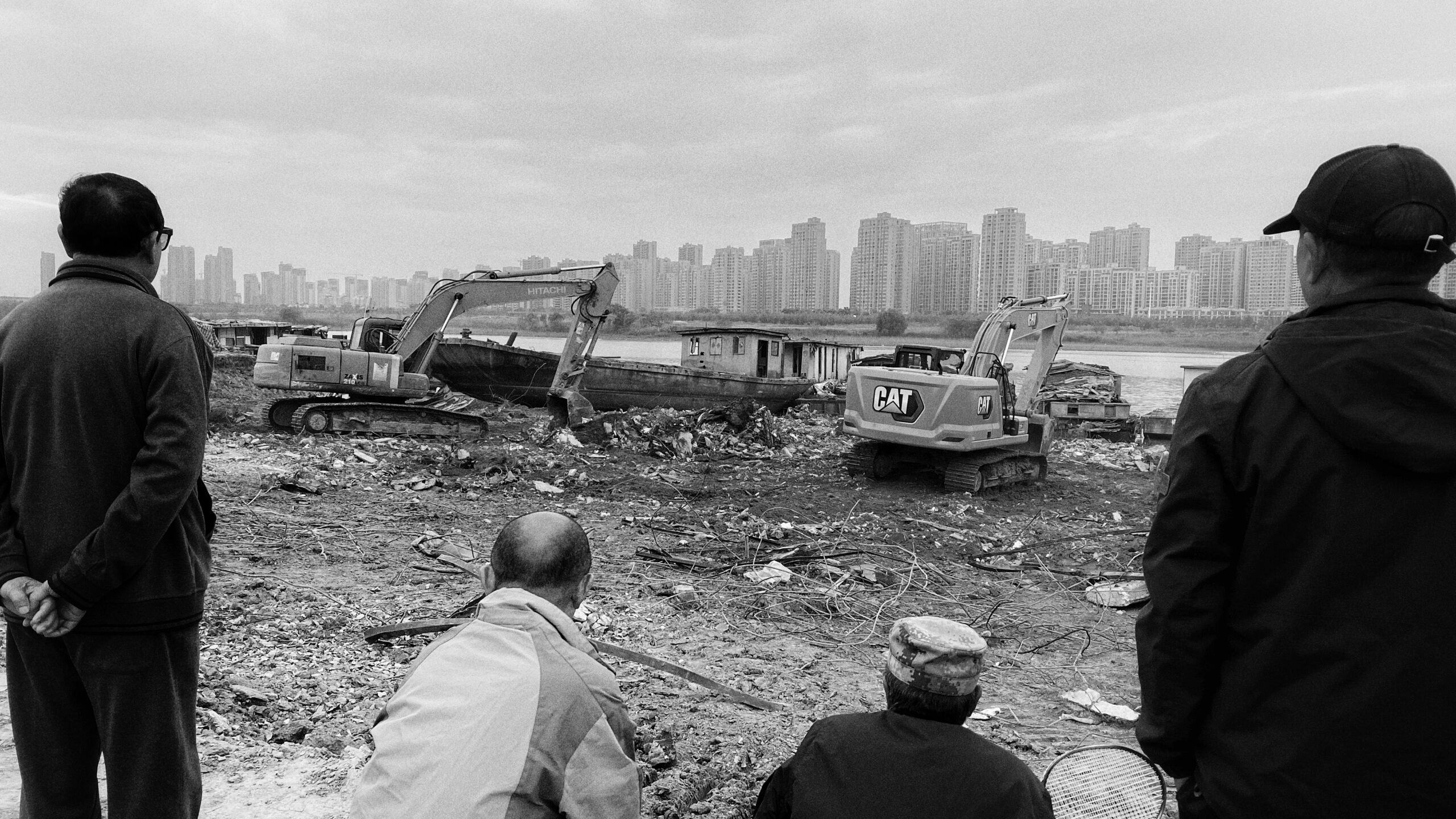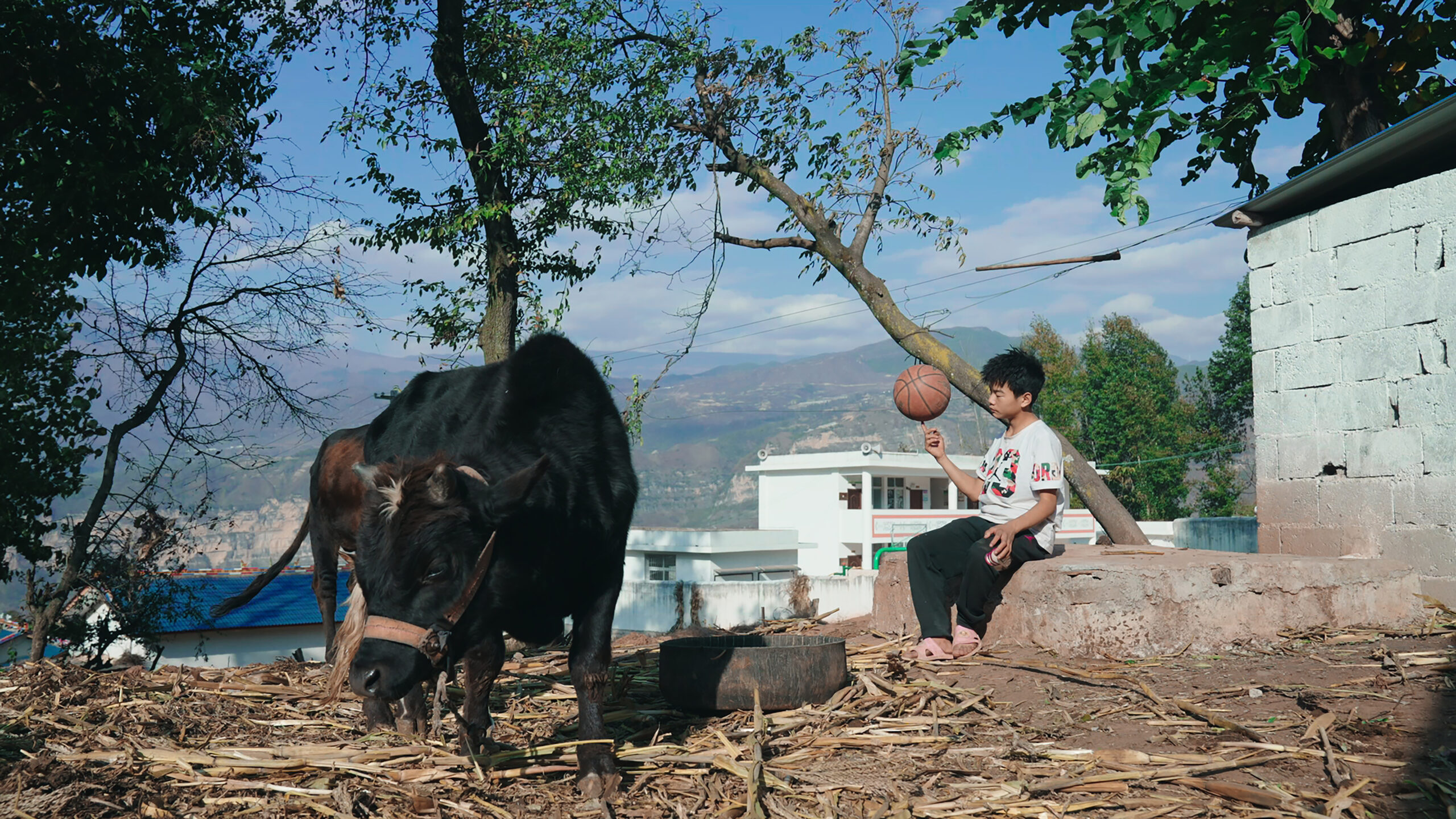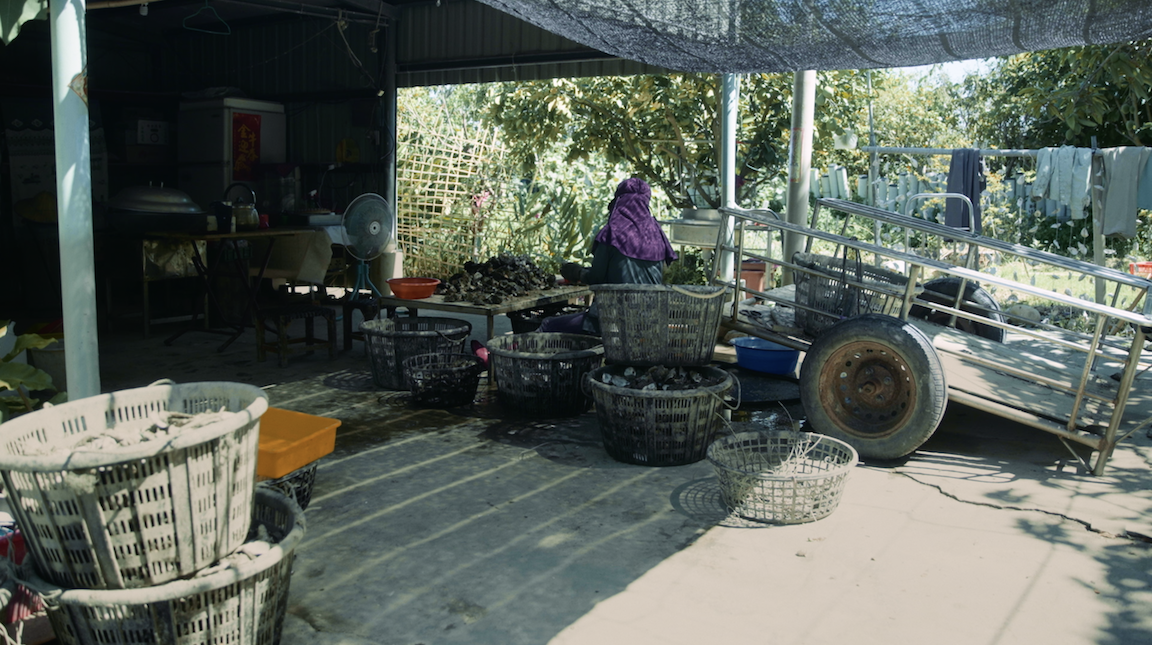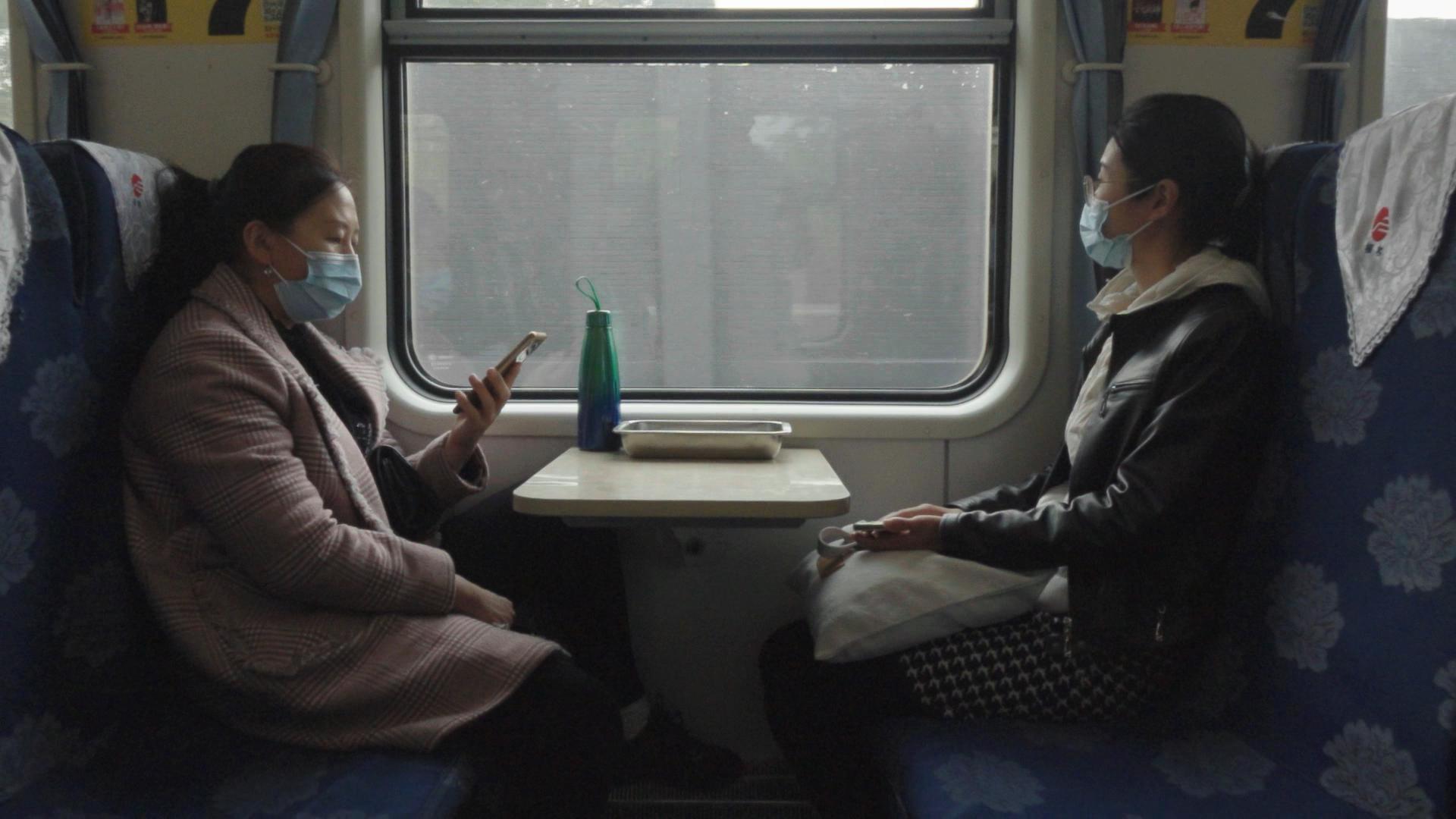Director │ WEN De-chuan
Producer │ HUO Jian-zhong
ZHANG Shi-wei, president of the Chengdu Mutual Aid Association for the Visually Impaired, has been doing public welfare for the blind and has formed a blind band. FENG Yi-ping daughter as a child because of disease blind, FENG Yi-ping divorce and ZHANG Shi-wei met love. Unlike ZHANG Shi-wei’s reticence, FENG Yi- ping’s character is straight like a young girl. Shortly after the two married, ZHANG Shi-wei was diagnosed with liver cancer, so FENG Yi-ping took over the burden of her husband and continued to work hard for the blind public welfare, and the love of the two people in their later years was sweeter.

Director │ Pony YIN
Producer │ DAI Yu-xin, WANG Cheng
Due to prolonged overfishing and environmental pollution, the fish ecosystem in China’s Yangtze River and its tributaries faced critical damage. In 2020, China launched the ‘Ten-Year Fishing Ban’ and ‘Fishermen Transition’ policies to safeguard and restore fish resources. It significantly changed Huai River fishermen’s lives in Bengbu, Anhui Province.
After their boats were forced demolition, fishermen were compelled to leave their aquatic homes. They not only lost their shelter but also their fishing skills, with insufficient compensation. The fishermen united to legally challenge the government, while adapting to their new life on land.
LIU Ji-tao, a fisherman, aimed unrealistically to be a TikTok star but burdened his wife, WANG Yue-qin, due to financial struggles. In three years, LIU faced career failures, bereavements, marital discord, and family dispersal, all while navigating life’s unpredictable currents.

Director │ SUN Yi-jie
Producer │ LIN Zan
This film focuses on the children of the “Black Hawks” who are spreading their basketball dreams in the depths of Daliang Mountain.
The film revolves around several team members, focusing on the left behind, deaf and mute children in Daliang Mountain, presenting the audience with the true mountain village and the process of children growing up in Daliang Mountain.
Through the contrast between the intensity and quality of training at home and abroad, as well as the investment restrictions, educational opportunities, and unequal quality of rural families. The camera present the stage wise confusion faced by young people in their life choices, and stares closer at the hardships, struggles, and expectations of their dreams under adversity.
Next, what awaits them is one life event after another that constantly relies on sports spirit to break through social class attributes.

Director, Producer │ CHEN Shuo
Unique Happiness City in Kunming became an abandoned and unfinished property project after construction stopped abruptly seven years ago, leaving behind decaying and unfinished structures. Impacted by the COVID-19 pandemic related life difficulties, the homeowners no longer want to wait passively and attempted to use public opinion to pressure the local government to resume the construction work. CHEN Yan-chun from Sichuan Province moved into the unfinished building with her six-year-old daughter and shared short videos of their lives on social media, drawing widespread attention and media coverage. Mounting public criticism forced local authorities to intervene. This catalysed a complex three-year struggle between the homeowners, the government, and various stakeholders. Determined to achieve their dream of homeownership, these families remained resilient, aiming to transform the doomed project into a victorious reality.

Director │ WONG Siu-pong
Producer │ Catherine CHAN
Three young women from Hong Kong were battling an aggressive brain cancer. While Ivy was bedridden, her boyfriend Asvin found ONC201 – an experimental drug from Germany. Tragically, Asvin held Ivy’s funeral a month after their hospital ward wedding. The drug couldn’t save her. Ceci was diagnosed just before turning 20. Her mother struggled with the idea of losing her. After her parents’ divorce, Ceci moved into a 170-square-foot apartment with her mother and grandmother. Learned about ONC201 from Asvin, Ceci and her mother pinned all hopes on it, but her body developed resistance soon. Being told to stop treatment felt like a death sentence. The remaining doses were given to Clare, who also saw the drug as her last resort. She has now survived for three years, without knowing what the future holds. In the face of death, what lessons must one learn, for themselves and for their loved ones?

Director, Producer │ Flora Ling-hwa HUANG
Producer │ CHEN Yu-jui
Picking oysters, taking good care of senior family and raising children in the village White Waters, three immigrant women have been carrying these daily burdens for two decades. The escape of drudgery life is through memories emerging at moments when one loses herself in daily triviality. They write about these moments on Facebook: childhood, work and life. Usual daily sunset reminded Hua of her teen’s playing with her siblings. Sounds made from Juan's riding scooter brought her to the past when selling breakfast with her mother. Huang, preparing meals every day, had the taste of her hometown far away. These memories, as an escape, keep them get going, and, as a trigger, summon their sensory feelings back at the time.
The film is about how one’s memories can soothe her in daily labors and iron out the wrinkles of migrated life. With a designed V.O. in protagonists’ mother tongue, it speaks fragments of their past and acts as a vehicle slowly navigating in the stream of memory.

Director │ Neko WANG
Producer │ Sydney LEE
“Why are there shares for men but not for women?” , “I am just fighting for my dignity” , “Is it a sin to be born a woman?”
These are their words. Their demand is simple: equality.
In rural China, it is common for women to be deprived of their land rights and homes, but their predicament is often invisible. Policies, village customary law, traditions, familial ties, marriage, and identity entangle their lives like cords. When they tried to uphold their legal rights, they were met with gaps in the law; and when they persisted (in their struggle for justice), they were treated as the “enemy” of the family or even the whole village.
By documenting three women and their families in different parts of China, the film shows the plight and struggle of women who have lost their land (and homes) to patriarchy. The problem of rural women’s land loss is a blind spot in China’s pursuit of gender equality and women’s liberation.

Get daily insight and update containing tips, skills for your creativity
Zero Spam. You Can Unsubscribe Anytime
